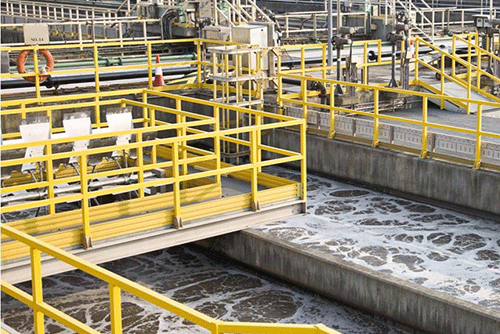Elago Shipanga
OTJIWARONGO – The Otjiwarongo Municipality has embarked on an ambitious initiative to turn waste into valuable commodities through the Water Treatment and Waste to Energy project.
Acting chief executive officer, Erickson Mwaanyekange made this announcement during the project’s inception workshop at Otjiwa Lodge on Wednesday last week.
Mwaanyekange emphasised the project holds the potential to create an alternative source of water for the town by recycling and reusing waste water generated within the town.
“Currently, Otjiwarongo’s demand for water stands at 130 000 cubic litres per month, while NamWater supplies us with just over 45 000 cubic litres a month. This project will bridge the gap between demand and our current water supply,” Mwaanyekange explained.
He added the initiative aligns well with Namibia’s National Development Plan 5 and the Harambee Prosperity Plan, forming an integral part of the municipality’s regional and spatial development strategy. Funding for the project preparation, totalling N$30 million, has been secured through a grant from the African Development Bank.
The Waste to Energy aspect of the project is set to transform solid waste from the town as well as encroacher bush from local farmers into biomass fuel, with the capacity to generate five megawatts of electricity.
Currently, Otjiwarongo produces and collects 5.5 tonnes of solid waste each month. However, to optimise the plant’s operations, it will require approximately 20 tonnes of solid waste, thus Otjiwarongo is exploring partnership agreements with neighbouring local authorities to transport their solid waste to the facility.
During the launch of the workshop, urban and rural development minister, Erastus Uutoni praised government’s commitment to infrastructure development as a catalyst for economic growth.
He praised the town’s leadership for undertaking this project, highlighting the potential for job creation and the competitive advantage it could provide in attracting further investment to the town.
“Your dedication to addressing critical issues of waste water management and energy generation demonstrates your commitment to the community’s well-being. Waste water treatment and waste-to-energy projects are integral components of modern urban planning.
“They not only contribute to improved public health by safeguarding our water resources but also offer innovative solutions for energy generation, reducing our carbon emission into our atmosphere and promoting economic growth. The overarching goal of waste water treatment facilities is to protect both humans and the ecosystem from harmful elements found in waste water,” Uutoni emphasised.
The minister also stressed the importance of transparency, accountability, and community involvement throughout the project cycle. He noted that community ownership and support are vital for ensuring the project’s sustainability and its goal of enhancing the quality of life for town residents while safeguarding the environment.
At the event, Otjozondjupa governor, James Uerikua expressed desire for the project to benefit all of Otjiwarongo’s more than 45 000 residents beyond employment creation.
He singled out electricity as an area where the community could benefit from lower tariffs, urging the regional electricity distribution company, Cenored, to explore integrating Waste to Energy results to reduce electricity costs for end-users.
“Undertaking the Water Treatment and Waste to Energy project, we have an enormous opportunity to make a substantial dent in reducing the effects of climate change in our country. Furthermore, we have a promising platform to lower electricity prices. The Waste to Energy component of this project should alleviate the burden of energy costs for end-users,” Uerikua asserted.
The Water Treatment and Waste to Energy project is expected to help stimulate the circular economy at the town, thereby reducing Otjiwarongo’s dependency on the mining and agricultural sectors.
*Elago Shipanga is an information officer in the information and communication technology ministry in the Otjozondjupa region.


